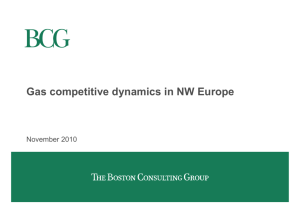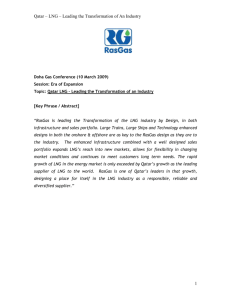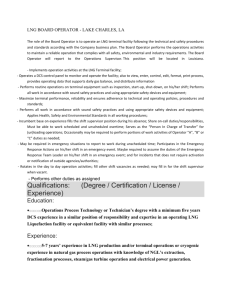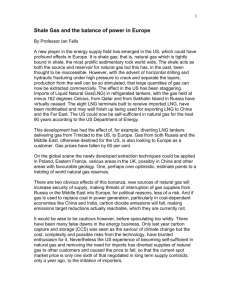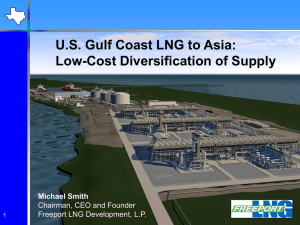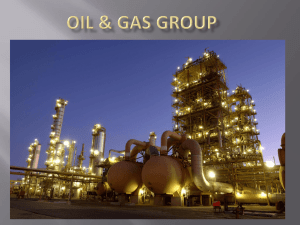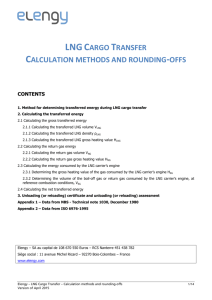LNG QUALITY SPECIFICATIONS
advertisement
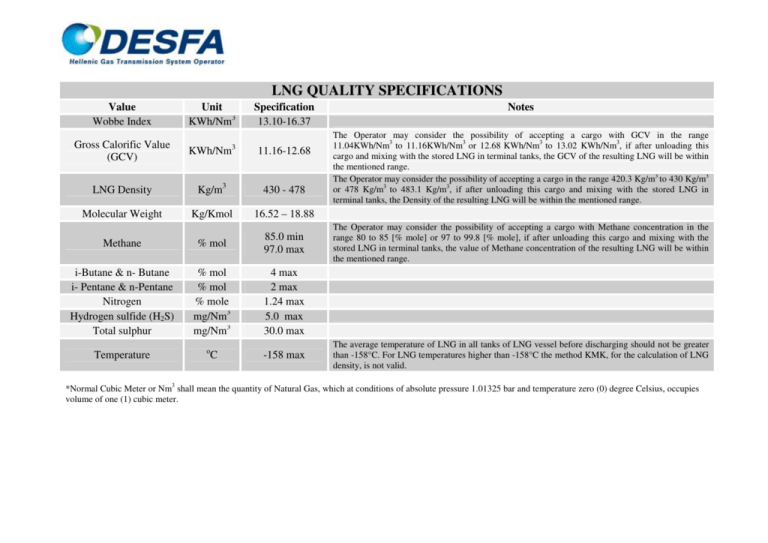
LNG QUALITY SPECIFICATIONS Value Wobbe Index Unit KWh/Nm3 Specification 13.10-16.37 Gross Calorific Value (GCV) KWh/Nm LNG Density Kg/m3 430 - 478 Molecular Weight Kg/Kmol 16.52 – 18.88 Methane % mol 85.0 min 97.0 max i-Butane & n- Butane i- Pentane & n-Pentane Nitrogen Hydrogen sulfide (H2S) Total sulphur % mol % mol % mole mg/Nm3 mg/Nm3 4 max 2 max 1.24 max 5.0 max 30.0 max Temperature o C 3 11.16-12.68 -158 max Notes The Operator may consider the possibility of accepting a cargo with GCV in the range 11.04KWh/Nm3 to 11.16KWh/Nm3 or 12.68 KWh/Nm3 to 13.02 KWh/Nm3, if after unloading this cargo and mixing with the stored LNG in terminal tanks, the GCV of the resulting LNG will be within the mentioned range. The Operator may consider the possibility of accepting a cargo in the range 420.3 Kg/m3 to 430 Kg/m3 or 478 Kg/m3 to 483.1 Kg/m3, if after unloading this cargo and mixing with the stored LNG in terminal tanks, the Density of the resulting LNG will be within the mentioned range. The Operator may consider the possibility of accepting a cargo with Methane concentration in the range 80 to 85 [% mole] or 97 to 99.8 [% mole], if after unloading this cargo and mixing with the stored LNG in terminal tanks, the value of Methane concentration of the resulting LNG will be within the mentioned range. The average temperature of LNG in all tanks of LNG vessel before discharging should not be greater than -158°C. For LNG temperatures higher than -158°C the method KMK, for the calculation of LNG density, is not valid. *Normal Cubic Meter or Nm3 shall mean the quantity of Natural Gas, which at conditions of absolute pressure 1.01325 bar and temperature zero (0) degree Celsius, occupies volume of one (1) cubic meter.
